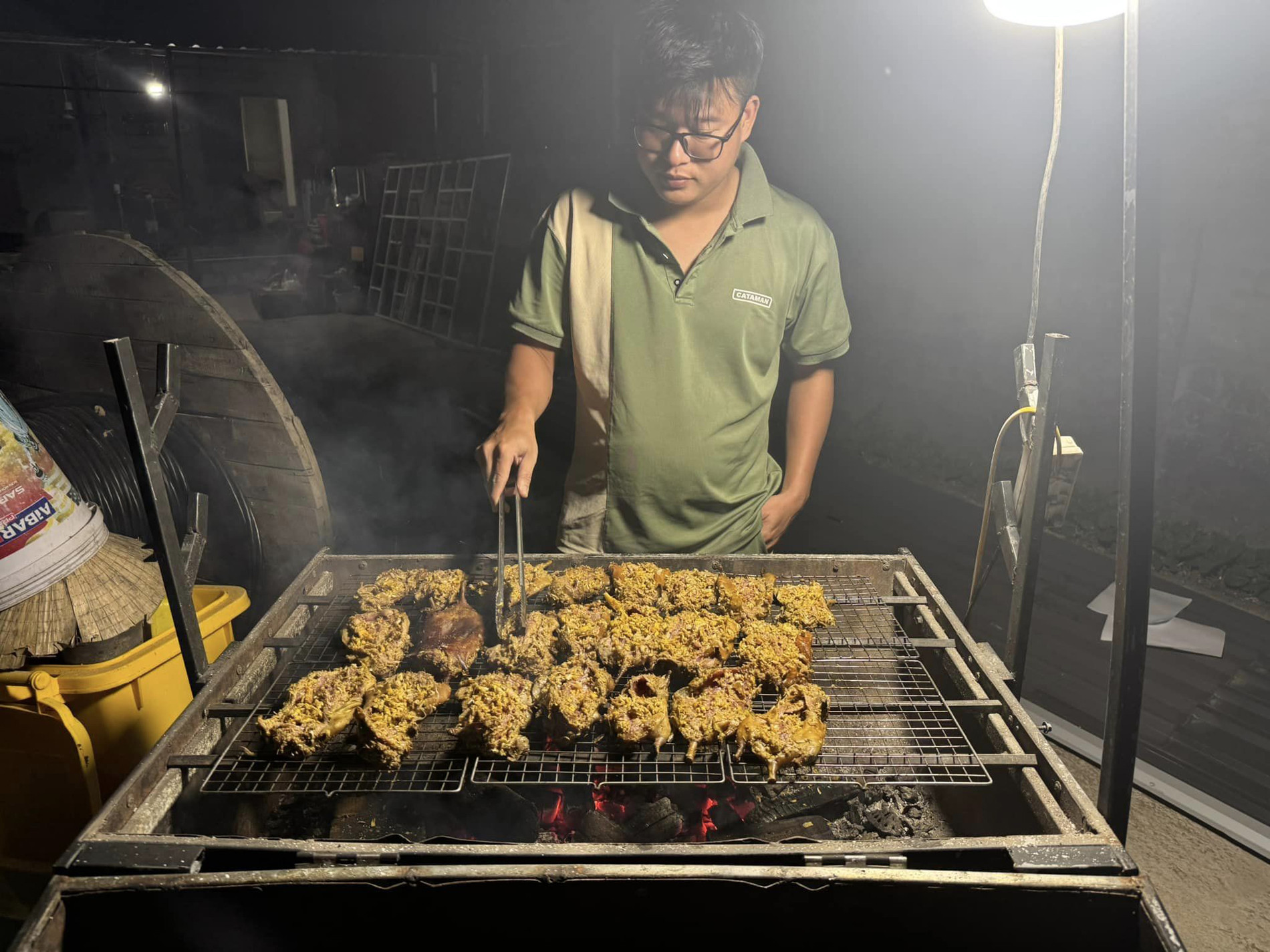
Local people said the field mice season begins in the ninth to the 11th month of lunar calendar. It is the time when mice seek rice grains in the fields to store fat to survive the upcoming winter, and their meat has the highest quality.
And it is also the time for people to hunt for mice, which helps protect the crops and yields extra incomes and materials to make special dishes.
Pham Quyen in TienLang district said field mice, after caught in rice fields, are brought home to be deplumed, and then roasted over fire. This helps make the mouse a yellow chrome color, so when cooked it will have an eye-catching color and delicious flavor.
After roasting the mice, chefs will remove internal organs, including heads and rotten parts, and then wash with salt water to clean it. In some localities, people retain rat liver because this part is considered fatty and delicious.
In order to remove the fishy smell, chefs will soak rat meat in ginger water or lemon juice for 10-15 minutes before cooking.
Rat meat can be processed into many dishes, but the most popular is boiled rat meat because the cooking method is simple and retains initial flavors.
After being cleaned and preliminarily processed, the rat meat is rolled up tightly and boiled in water for 7-10 minutes. Ginger, salt and spices such as onions, fish sauce and pepper can be added to the broth to make the meat rich and fragrant.
In general, people won’t eat boiled rat meat right after boiling, but they will make the dish more appealing, such as drying it overnight or pressing ‘re leaves’, also known as wild ginger, which grows naturally in many rural areas.
“In my hometown, after boiling the rat meat, we take it out and let it drain. Then, people spread banana leaves, put ‘re leaves’ inside, and place the rat meat in the middle,” Quyen said.
When eating, people can add other ingredients such as ginger leaves, galangal leaves, lemon leaves, crushed or chopped lemongrass leaves to increase the aroma of the dis. After that, they roll the rat meat tightly with the ‘re leaves’, then put a stone mortar or a heavy object on the rolls.
The pressing helps rat meat become firmer, chewier, tastier, and imbued with the aroma of ‘re leaves’.
Boiled rat meat is dipped in fish sauce with ginger, chili, or simply dipped in a mixture of salt, chili and lemon.
Thao Trinh